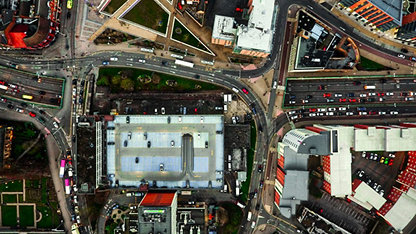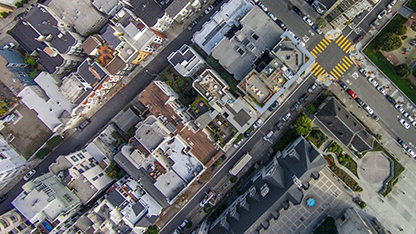How do cities such as Christchurch, New Zealand, which has suffered major natural disasters, attract the people, investment and entrepreneurs they need to rebuild their economies? We asked Chief Executive Officer of Development Christchurch Limited (DCL) Rob Hall FRICS how the city is regenerating after the earthquakes in 2010 and 2011.
This is one of the briefs for the Cities for our Future Challenge, which if part of our 150th anniversary celebrations. We’re looking for transformative ideas for projects and policies that solve some of the defining issues of our time: rapid urbanisation, climate change, and resource scarcity.
The rebuild
Christchurch is in the middle of a historic transformation. Since the earthquake that devastated the city on 22 February 2011, both public and private sectors have made strong contributions to rebuild the city. The vision is to make Christchurch a 'City of Opportunity' – a greater place to live and work than ever before.
Christchurch’s rebuild has recently entered a new phase of regeneration. The central city has bounced back to life with new working spaces, consumer retail outlets, a plethora of new bars, restaurants and cafes, and new public spaces. To help ensure the city’s on-going regeneration, we must be mindful of the changing economic landscape and act now to secure our future.
Funding Christchurch’s regeneration
Since the earthquakes, Greater Christchurch’s economy has been fuelled by billions of dollars of insurance money. This has contributed towards the $40 billion rebuild led by significant investment from both the public and private sectors. It could be said that Christchurch is involved in the biggest public-private partnership this country will ever see. The social and economic regeneration outcomes sought by the city can only be achieved by carefully leveraging public spending to maximise private sector investment.
At the first Christchurch Leaders’ Forum last year, we celebrated an upcoming 'Goldilocks' period of cranes filling the skyline and major public and private sector projects taking shape. It is a positive time for the city, but we must be mindful that funding sources are becoming exhausted. We are nearing the end of the insurance rebuilds, major banks are tightening lending criteria and there is a need to look further afield to fund the remaining rebuild.
Attracting international investment
We know there is no shortage of capital in the international investment market; our job now is to make Christchurch an attractive proposition for those investors and developers. Part of DCL’s role is to identify sources of private equity that can be matched to development opportunities. Acting as an investment and advisory arm of the Christchurch City Council, we have a significant job ahead to facilitate external investment and pave the way for continued regeneration.
There are already good examples, such as the Christchurch Adventure Park, and behind-the-scenes progress on the mixed-use Peterborough Quarter development on the former Convention Centre site. Attracting these levels of investment require the combined effort of an entire city.
We must open our doors, as well as our ears, to the market and understand what it will take to get investors on board. It means that, as a city, we must act commercially and decide how we will partner with the private sector to deliver public benefits. It is imperative that we are mindful of our natural environment as we do this.
Decision time
DCL is reaching out to our investment and development partners to test the appetite for future opportunities and partnerships. What are the opportunities for them? How can they get involved? What are the stumbling blocks and what’s worked well in the past? The city must offer confidence, clarity and certainty to the market to fuel the next stage of the recovery.
There is also a decision to be made about the role the public sector plays over the next 10 years. Do we tighten our collective belt and ride out more challenging economic conditions? Or do we seize the opportunity to fully realise the city’s ambition by bringing forward big public projects funded through inter-generational investment and leveraging private sector support?
It’s clear there are challenges ahead, but we have also come far. From the devastating days and weeks following the 22 February earthquake, Christchurch has undertaken a monumental task and achieved much. Preparing to successfully navigate the challenges through smart investment and decisions is essential if we are to deliver on our ideals for New Zealand’s oldest, and now newest, city.













